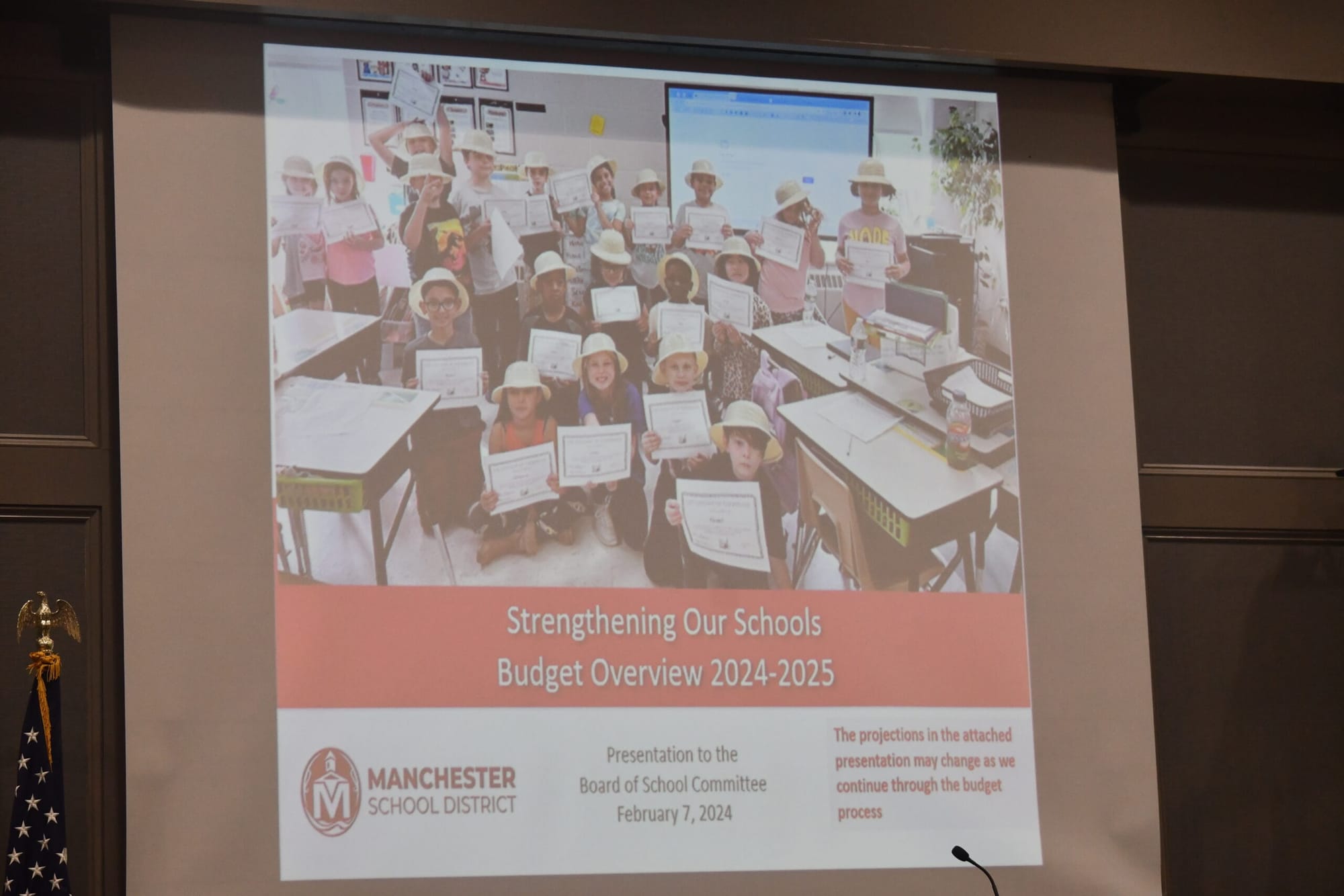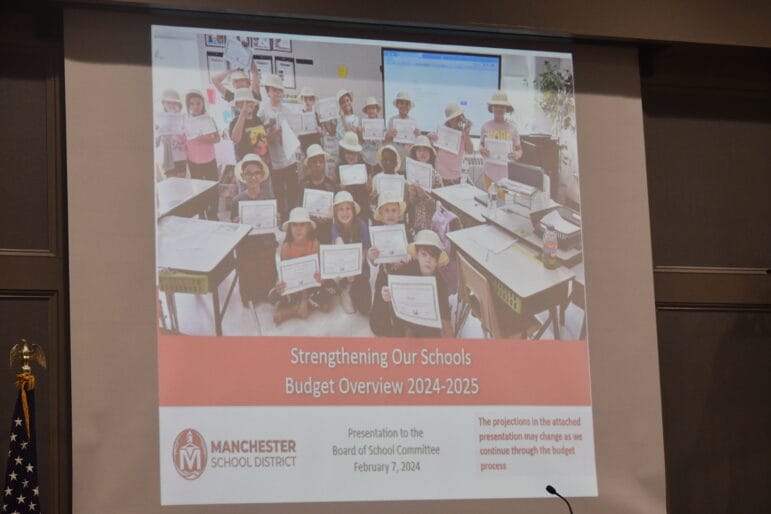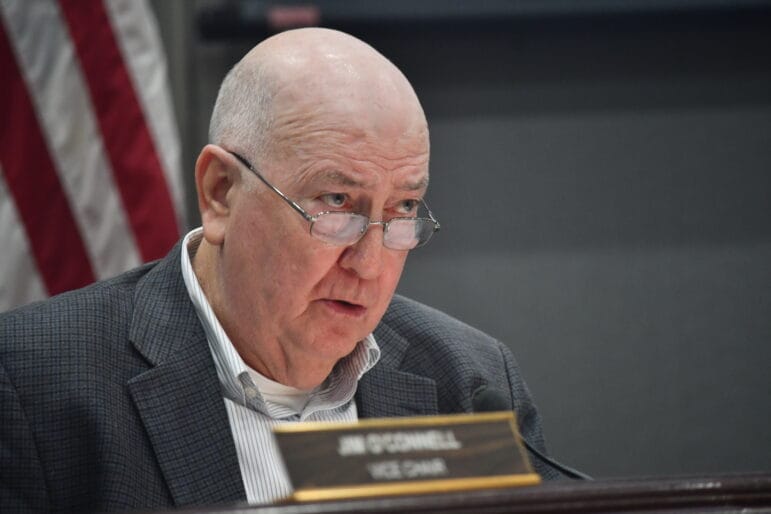School Board members get first look at FY’ 25 budget
The Manchester Board of School Committee (BOSC) got their first look at the Manchester School District Fiscal Year 2025 Budget on Wednesday night as the BOSC Finance and Facilities Committee recommended a proposed budget of $232,227,530.


MANCHESTER, N.H. – The Manchester Board of School Committee (BOSC) got their first look at the Manchester School District Fiscal Year 2025 Budget on Wednesday night as the BOSC Finance and Facilities Committee recommended a proposed budget of $232,227,530.
While that figure complies with the city’s tax cap, it still marks a increase from the tax cap compliant $191,759,220 budget initially proposed to the Board of Mayor and Aldermen (BMA) by the BOSC for FY’ 24 and eventual total appropriation of $226,982,607. That shift comes in large part because this year marks the first budget process not including 2020’s impact on the three-year consumer price index.
Another factor is rising property values in the city, leading to an additional approximately $6.7 million in revenue from local taxes. A total of $7.8 million fund balance from the FY’ 24 was also allocated toward the proposal’s revenue figure as well as a nearly $7.8 million decrease in adequate education aid from Concord and a $1.2 million transfer from the expendable trust along with other changes.
Manchester School District Superintendent Dr. Jenn Gillis also proposed retaining 42.3 of the 77.5 full-time equivalent positions that were provided thanks to funding from the Elementary and Secondary School Emergency Relief (ESSER) fund. She stated that those positions dealt directly with students and the non-retained positions were scattered across the city. However, she also noted that no one would be laid off as the non-retained positions would come from retiring staff members as well as transfers into positions that had funded line items but remained vacant due to a lack of applicants.
Gillis presented the budget as a symbol of the district’s efforts to create a more systemic approach toward education that has developed city-wide curricula standardization and enhanced collaboration in recent years.
“I want to remind all of us that this is our budget, a budget to build life-long student learning,” she said. “This work is not done in isolation, but rather is done as parts of a whole.”
She noted that it would have been her preference to retain some of the positions lost due to the expiring ESSER funds, which came as federal relief for the COVID-19 pandemic, realizing that it was not feasible. This year she also declined to submit a “full needs” budget in addition to the tax cap compliant budget that reflected the “true needs” of the district, which members of the BMA could choose instead of the tax compliant budget the mayor is charter-bound to present.
“No one ever wants to cut positions, we always want to keep growing,” she said. “But we have to be smart with the resources we get from the city.”
Members of the Committee and BOSC members not on the committee sought more information on concerns like a lack of art teachers in the city’s elementary schools, high special needs transportation costs and finding in-house solutions to eliminate the need for out-of-district student placements.

Still, most of the comments were positive, particularly from Ward 9 BOSC Member and Finance and Facilities Committee Chair Robert Baines.
Baines served as principal at Manchester West High School during the 1980s and 90s and served as mayor shortly afterward, and he said that was a time with drastically more budget uncertainty than now. Baines recalled to the board stories about one teacher that had a nervous breakdown in his office worrying about job security and another year where the district saw 300 layoffs.
“Where we are now, it’s not your grandmother’s school district,” he said.
Baines also praised curriculum alignment and efforts to update the district’s HVAC systems, stating that it will take time for residents to see the changes that have been implemented by Gillis in recent years.
Additionally, he told other members of the board that they will have to advocate for the proposed budget in upcoming weeks.
“I know there are great needs in this district and I realize this is a big tax cap number. I just hope the Aldermen realize there are needs even beyond this,” he said.
Along with the tax cap compliant budget, the committee also recommended the proposed $6,252,176 School and Food Nutrition Budget for FY’ 25. Both budgets now go next to the full BOSC.





